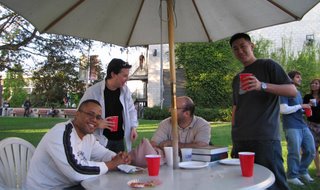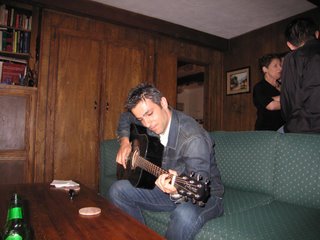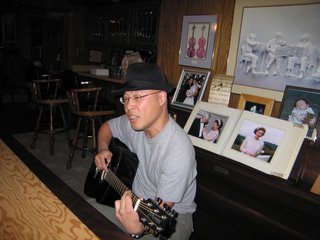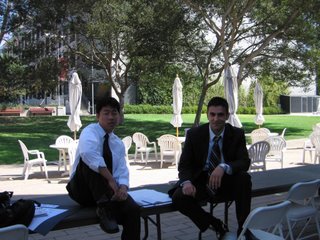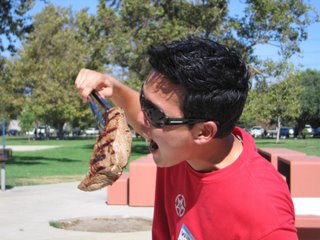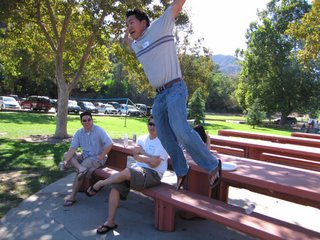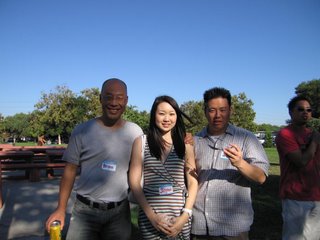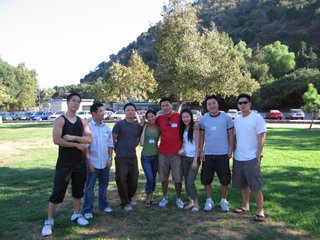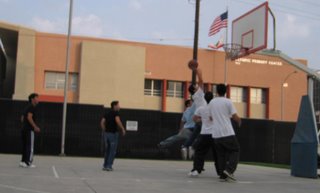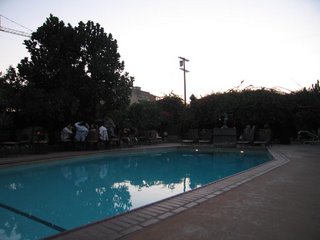Pursuant to a request, I am starting a discussion for Evidence. Unlike the discussion for Con Law 2, I am starting this before my outline is completed. There are enough readers that know enough about different parts of the subject to help each other out. Further, consider this a gathering place, a bulletin board, for students to trade information on helpful suggestions. Because Loyola Law School has the most helpful students!
Update: (2006.12.18.01:50 PST) Goldman students: Here are notes from the review he had on Monday 4 December:
Agency theory
If the only evidence you have to support a theory of agency is the fact that the agent declared himself an agent, that is not admissible in any jurisdiction to prove its point; however, in federal court, if it has been admitted for other purposes, it is admissible as partial proof of agency
Present recollection refreshed vs. past recollection recorded
When can something be read into evidence, and when can it not? You can read into the record a past recollection recorded; if it is a present recollection refreshed, the refreshing document may not be read into the record on direct examination. A present recollection refreshed does not qualify as a past recollection recorded because one of the elements of a past recollection recorded is missing: that the person does not remember.
State of mind
California requires, for past state of mind, that the declarant is unavailable, and that there is high degree of trustworthiness (that the statement was what the declarant believed).
Corrections
In the chart on state of mind, there is a mistake. Where it talks about “future conduct by someone other than declarant”, change CEC 1251(b) to CEC 1250(b). Actually, scratch it out. It should be “yes, according to case law”.
Authentication
You always have to authenticate. For example, a business record needs to be authenticated before you can even object to it as hearsay, much less claim an exception for business records. If a witness does not authenticate a writing as hers, you can still authenticate in some other way, for example by using a handwriting expert.
Prior convictions
California doesn’t follow a strict collateral rule like the federal courts. California pretty much only goes by CEC 352, so it’s a case-by-case determination.
Attorney-client privilege
Gossip is not included.
Prior inconsistent statements
California seems to have the most flexible rules, allowing a court to keep a witness on call after examination. This may consume a lot of time, but California is more concerned with fairness.
Statements identifying a person
If a witness has identified a person, but subsequently claims not to remember, is that a consistency issue? Is there a problem with the prior identification? There is no problem; in fact, if the identification has been made, there’s no point to try to establish the identification again. By the way, there is no requirement that the prior identification have been made under oath.
Prior consistent statements
In federal rules and common law, there is only one trigger—an allegation of “recent fabrication”; in California, there are two triggers—an allegation of “recent fabrication” and prior inconsistent statement.
Best evidence rule
If a doctor looks at an X-ray and also determines from other methods that his patient had a broken leg, is his testimony that the patient had a broken leg admissible? It may be. In order to exclude this, we’d have to isolate his diagnosis to the X-ray alone, triggering the best evidence rule.
Admissions
Do they have to be to the other party? No, they can be to anybody.
